

Our Courses

Meta Back-End Developer
Ready to gain new skills and the tools developers use to create websites and web applications? This certificate, designed by the software engineering experts at Meta—the creators of Facebook and Instagram, will prepare you for an entry-level career as a back-end developer. In this program, you’ll learn: Python Syntax—the most popular choice for machine learning, data science and artificial intelligence. In-demand programming skills and how to confidently use code to solve problems. Linux commands and Git repositories to implement version control.
-
Course by

-
 Self Paced
Self Paced
-
 English
English

Java FullStack Developer
The Java Full Stack Developer Specialization equips you with the end-to-end skills needed to build modern, cloud-ready web applications. Across three courses, you’ll master core Java programming (OOP, multithreading, data structures), gain front-end expertise with HTML, CSS, JavaScript, and Angular, and develop strong back-end capabilities with Servlets, JSP, JDBC, Spring, and Hibernate.
-
Course by

-
 Self Paced
Self Paced
-
 English
English
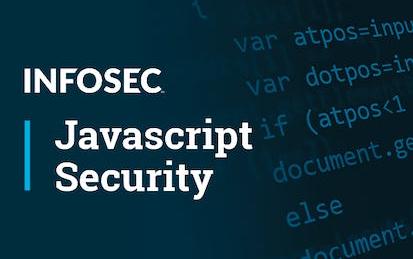
JavaScript Security
In this Specialization, we will investigate, prevent, and resolve JavaScript-related attacks and learn how to build safer JavaScript applications. JavaScript is a fundamental technology for building web applications and is also popular for building server-side, desktop, and even mobile applications. Most of this learning Specialization will cover front-end JavaScript; however, we will also consider Node.js. After completing this Specialization, you will understand the diverse threats and protections of the JavaScript world.
-
Course by

-
 Self Paced
Self Paced
-
 English
English

Spring MVC, Spring Boot and Rest Controllers
This is a course aimed at students wishing to develop Java based Web Applications and Restful Micro Services using the very popular Spring MVC and Spring Boot frameworks with minimal configuration. The student will develop services through various Url templates, consume and respond with json or XML payloads and create custom HTTP headers. Requestors of these services will include Java and Angular JS clients to illustrate the reuse capabilities of services in a distributed architecture.
-
Course by

-
 Self Paced
Self Paced
-
 12 hours
12 hours
-
 English
English

AngularJS Tutorial
Start learning AngularJS with the w3schools tutorial to improve your Web Development skills. AngularJS is a JavaScript-based framework for creating single-page web applications. This is a structured and interactive version of the w3schools AngularJS Tutorial. The course is self-paced with text based modules, practical interactive examples and exercises to check your understanding as you progress. W3schools is the world's largest web developer learning site. Start learning with our proven tutorials used by millions of learners!
-
Course by

-
 Self Paced
Self Paced
-
 6 hours
6 hours
-
 English
English

Frontend for Java Full Stack Development
This comprehensive course is designed to equip students with the necessary skills to create interactive, dynamic, and fully functional front-end applications as part of a full-stack Java development process. The course consists of three modules that guide students through the fundamentals of HTML, CSS, JavaScript, and Angular. The first module, "Introduction to HTML & CSS", serves as the bedrock of the course where students are introduced to the basics of HTML (Hypertext Markup Language) and CSS (Cascading Style Sheets).
-
Course by

-
 Self Paced
Self Paced
-
 24 hours
24 hours
-
 English
English

Ajax Basics
The AJAX BASICS course is meticulously crafted to empower learners with the expertise to create dynamic and interactive web applications through AJAX (Asynchronous JavaScript and XML). The first module introduces the fundamentals of AJAX, delving into its history, the revolutionary role in web development, and how it enables asynchronous data exchange. Lessons include an introduction to AJAX, understanding the basics of HTTP requests and responses, and the XMLHttpRequest object's role in AJAX. The second module leads into an in-depth exploration of JavaScript and jQuery for AJAX.
-
Course by

-
 Self Paced
Self Paced
-
 14 hours
14 hours
-
 English
English
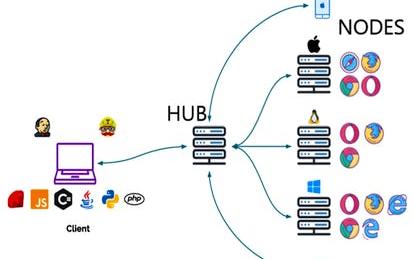
Cypress API test automation for absolute beginners
Cypress is a free, open-source frontend (UI) and backend (API) test automation tool built for the next generation of modern web applications.
-
Course by

-
 Self Paced
Self Paced
-
 2 hours
2 hours
-
 English
English

AWS: Containerization
AWS: Containerization Course is the fourth course of Exam Prep: AWS Certified DevOps Engineer - Professional Specialization. This course teaches deploying container-based applications using AWS services. This also focuses on running Kubernetes in the AWS cloud and on-premises data centers. In the end, it teaches learners to migrate and modernize Java and .NET web applications into container format. The course is divided into three modules and each module is further segmented by Lessons and Video Lectures.
-
Course by

-
 Self Paced
Self Paced
-
 6 hours
6 hours
-
 English
English

Data Structures & Backend with Java
This comprehensive course delves deep into the nuances of data structures and backend development with Java. The curriculum is strategically designed across three core modules, seamlessly bridging the understanding of theory with practical application. In the first module, we delve into Java-based data structures, focusing on arrays, multi-dimensional arrays, the String class, and the Java Collections Framework.
-
Course by

-
 Self Paced
Self Paced
-
 20 hours
20 hours
-
 English
English

Cypress end to end testing and intercepting network call
Cypress is a complete end-to-end test automation tool built to test modern-day web applications. Cypress is used by developers or QA engineers building web applications using modern JavaScript frameworks. In this hands-on guided project, you will learn — 1. Architecture of Cypress and a new way of UI automation testing 2. Controlling the network traffic 3. Intercepting HTTP request calls 4. Intercepting and updating HTTP request/response
-
Course by

-
 Self Paced
Self Paced
-
 4 hours
4 hours
-
 English
English

Spring Framework
This Specialization explains high level patterns used in Microservice architectures and the motivation to move towards these architectures and away from monolithic development of applications. Students will learn how Java interacts with databases in a modern framework, using the very popular Spring Boot Framework, with Microservices. Students wishing to develop Java based Web Applications and Restful Micro Services will be using the very popular Spring MVC and Spring Boot frameworks with minimal configuration.
-
Course by

-
 Self Paced
Self Paced
-
 English
English
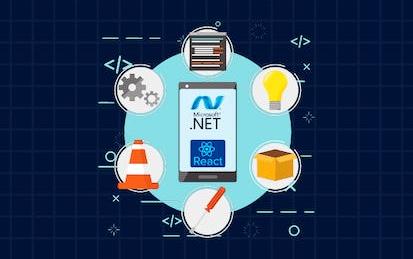
Building React and ASP.NET MVC 5 Applications
The Building React and ASP.NET MVC 5 Applications Specialization equips you with the skills to develop modern, full-stack web applications. You’ll start by mastering ASP.NET MVC 5 and C# fundamentals, then dive into frontend development with React, building reusable components and dynamic UIs.
-
Course by

-
 Self Paced
Self Paced
-
 English
English
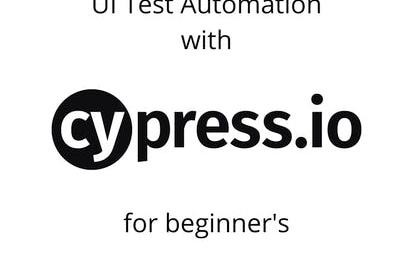
Cypress UI automation testing for absolute beginners
Cypress is a complete end-to-end test automation tool built to test modern-day web applications. It is capable of automating both UI and API. This project is for beginner's in Cypress
-
Course by

-
 Self Paced
Self Paced
-
 3 hours
3 hours
-
 English
English

Plant Bioinformatic Methods
The past 15 years have been exciting ones in plant biology. Hundreds of plant genomes have been sequenced, RNA-seq has enabled transcriptome-wide expression profiling, and a proliferation of "-seq"-based methods has permitted protein-protein and protein-DNA interactions to be determined cheaply and in a high-throughput manner.
-
Course by

-
 Self Paced
Self Paced
-
 English
English
Web Technologies and Security
This specialization is intended for people without programming experience with JavaScript frameworks and who seek to develop web application and security skills. In these four courses, you will cover everything from the fundamentals of VueJS to properly securing data in web development. These topics will help prepare you to write anything from small web applications to securing back-end systems. Learners who complete this specialization should have enough enough understanding of JavaScript frameworks to tackle other common tools like React or Svelte.
-
Course by

-
 Self Paced
Self Paced
-
 English
English

Create your first test automation script - Selenium and C#
“Selenium automates browsers, that’s it. What you do with that power is up to you.” Selenium is the most widely used UI automation tool to test web applications. By the end of this one-hour project-based course, you will learn the basics of the selenium automation testing tool. In this 1-hour long project-based course, you will learn how to -- Basic Selenium commands Interacting with common web elements like textbox, checkbox, dropdown Performing drag and drop operation Handling windows alerts using Selenium
-
Course by

-
 Self Paced
Self Paced
-
 3 hours
3 hours
-
 English
English
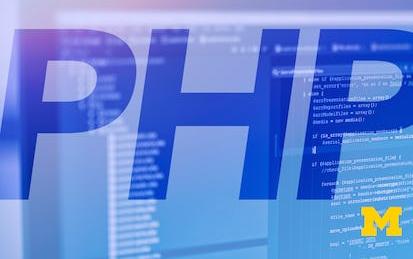
Building Web Applications in PHP
In this course, you'll explore the basic structure of a web application, and how a web browser interacts with a web server. You'll be introduced to the request/response cycle, including GET/POST/Redirect. You'll also gain an introductory understanding of Hypertext Markup Language (HTML), as well as the basic syntax and data structures of the PHP language, variables, logic, iteration, arrays, error handling, and superglobal variables, among other elements. An introduction to Cascading Style Sheets (CSS) will allow you to style markup for webpages.
-
Course by

-
 Self Paced
Self Paced
-
 31 hours
31 hours
-
 English
English

Building Web Applications in Django
In this course, you will learn how Django communicates with a database through model objects. You will explore Object-Relational Mapping (ORM) for database access and how Django models implement this pattern. We will review the Object-Oriented (OO) pattern in Python. You will learn basic Structured Query Language (SQL) and database modeling, including one-to-many and many-to-many relationships and how they work in both the SQL and Django models. You will learn how to use the Django console and scripts to work with your application objects interactively.
-
Course by

-
 Self Paced
Self Paced
-
 13 hours
13 hours
-
 English
English

Building Database Applications in PHP
In this course, we'll look at the object oriented patterns available in PHP. You'll learn how to connect to a MySQL using the Portable Data Objects (PDO) library and issue SQL commands in the the PHP language. We'll also look at how PHP uses cookies and manages session data. You'll learn how PHP avoids double posting data, how flash messages are implemented, and how to use a session to log in users in web applications. We'll then build the first 'complete' application that has multiple screens to Create, Read, Update and Delete (CRUD) our data.
-
Course by

-
 Self Paced
Self Paced
-
 24 hours
24 hours
-
 English
English

Web Application Technologies and Django
In this course, you'll explore the basic structure of a web application, and how a web browser interacts with a web server. You'll be introduced to the Hypertext Transfer Protocol (HTTP) request/response cycle, including GET/POST/Redirect. You'll also gain an introductory understanding of Hypertext Markup Language (HTML), as well as the overall structure of a Django application. We will explore the Model-View-Controller (MVC) pattern for web applications and how it relates to Django.
-
Course by

-
 Self Paced
Self Paced
-
 15 hours
15 hours
-
 English
English

Django Features and Libraries
In this course, you will learn how to build Django-based web applications suitable for use by end users. You will learn about cookies, sessions, and authentication processes in Django. You will build navigation into your applications and explore ways to easily improve the look and feel of Django applications. You will begin to develop a simple application to support a classified ads website that will walk you through many of the issues and techniques that you encounter in website development. You will also learn how to move an application from development to production.
-
Course by

-
 Self Paced
Self Paced
-
 17 hours
17 hours
-
 English
English

Service-Oriented Architecture
Based on an understanding of architectural styles, you will review architectures for web applications, then explore the basics of Service-Oriented Architecture (SOA) in two approaches: Web Services (WS*) and Representational State Transfer (REST) architecture.
-
Course by

-
 Self Paced
Self Paced
-
 10 hours
10 hours
-
 English
English

Introduction to Web Development with HTML, CSS, JavaScript
Want to take the first steps to become a Web Developer? This course will help you discover the languages, frameworks, and tools that you will need to create interactive and engaging websites right from the beginning. You will begin by learning about the roles of front-end, back-end, and full-stack developers and how they work together on development projects. Through this, you will also become familiar with the terminology and skills needed in your career as a web developer. Next, you will explore the languages needed for developing websites or applications.
-
Course by

-
 Self Paced
Self Paced
-
 25 hours
25 hours
-
 English
English
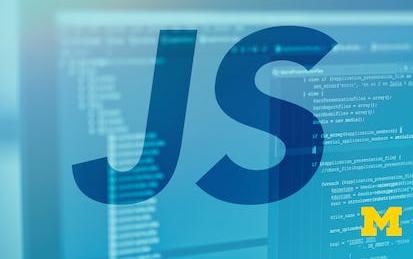
JavaScript, jQuery, and JSON
In this course, we'll look at the JavaScript language, and how it supports the Object-Oriented pattern, with a focus on the unique aspect of how JavaScript approaches OO. We'll explore a brief introduction to the jQuery library, which is widely used to do in-browser manipulation of the Document Object Model (DOM) and event handling. You'll also learn more about JavaScript Object Notation (JSON), which is commonly used as a syntax to exchange data between code running on the server (i.e.
-
Course by

-
 Self Paced
Self Paced
-
 26 hours
26 hours
-
 English
English



